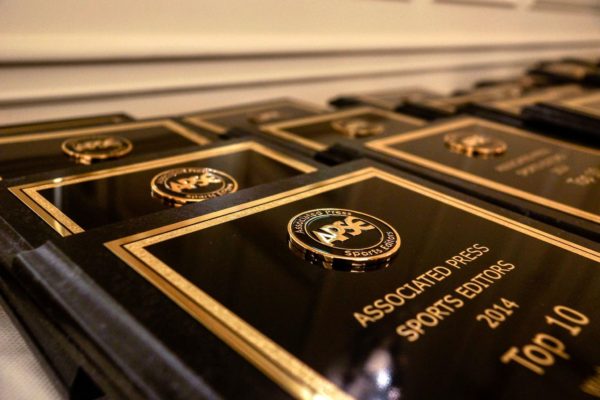 When were you APSE president?
When were you APSE president?
I was APSE president from June 1990 to June 1991. During that time I switched jobs from Executive Sports Editor of the Mercury News to Editor of The Sporting News. Fortunately, Jeff Wohler and Dale Bye, in particular, picked up a lot of details that otherwise would have fallen through cracks while I adjusted to a new job.
What was your best memory of APSE?
Probably contest judging along with the very cordial and enlightening exchanges of philosophical viewpoints about the contests in general.
What was the highlight of your time as a sports editor?
Hiring some really terrific people and offering opportunities for them to grow and put their considerable skills on display. We built a terrific staff at the Mercury News (I always knew Bud Geracie was a Sports Editor in the making) and at The Sporting News. Of course, I am also the guy who after getting the Merc in May of 1983 told a pretty bright young writer, “You do have some nice clips but we just don’t have anything for you here, Mitch.”
What would you do differently today as a sports editor?
First, hire Mitch Albom.
If I had a good answer for that question, I’d be sitting on the sun deck of my winter home in Palm Springs. I am looking at this from outside the business, but I think I would try to be more disciplined in using resources (albeit they would be less than I had to work with) to deliver unique, relevant information to consumers. I think I was always pretty good at working with the ad sales staff – I can hear some of you will cringe even now – in terms of developing packages that were good for readers and so were also good for advertisers. In general, print media are pretty good at pointing out the flaws that prevent tradition-bound organizations from growing. Yet, our newsrooms seem some of the most inflexible, change-resistant animals since, well, dinosaurs.
What advice do you have for current sports editors?
Make every employee in your department read and then see “12 Angry Men”. Know your budget better than anybody else in the building and know how to work the system for the benefit of your department. Embrace leadership and management as the most important parts of the job – and know the difference between the two. Learn to delegate. Tell your employees the truth, even when they don’t want to hear it. Make the line between being a skeptic – an extraordinarily important part of our job – and a cynic clear and do not let the cynics set the tone for the department. If you have an office, spend as little time in it as you possibly can. Never use email to communicate with your staff.
What is your current occupation?
I am a full-time homemaker and part-time student. I was let go by The Sporting News in July 2007. We have a 12-year-old son, Sam, with special needs, so he is my primary responsibility. I am a part-time student at Eden Theological Seminary and hope to complete course-work there or another seminary that would prepare me to enter the ministry of the Presbyterian Church-USA. For many years I have said God closes a window and opens a door. I said it a lot in the days leading up to The Sporting News closing its office in St. Louis and my job ending. In all honesty, I didn’t think it was the door at a seminary that might open.
Do you have any plans for the future?
Try to get Sam through high school and perhaps some schooling/training beyond that. Try to finish my schooling before he does. Keep my wife gainfully employed and have dinner on the table every night (OK, some nights) when she gets home from work. There is life after journalism.
Editor’s Note: In conjunction with APSE’s partnership with Indiana University’s National Sports Journalism Center, the Red Smith Hall of Fame will permanently honor winners of the Red Smith Award as well as, secondarily, past APSE presidents. As a part of that effort to honor those who built APSE, past presidents have been invited to the opening of the Hall of Fame on April 24 in Indianapolis. Leading up to the convention, past presidents will be periodically profiled here.





